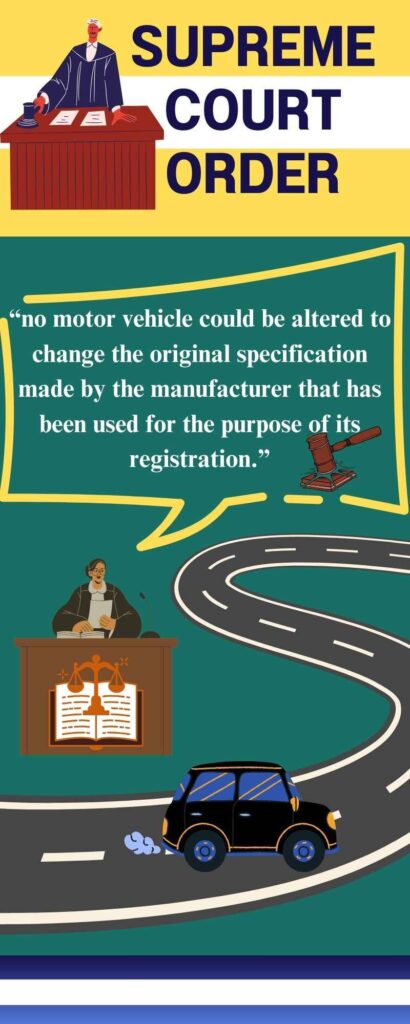Cases booked for vehicle alteration are currently just for defective silencer and shrill horn in Bengaluru, say experts and authorities.
Despite several modified vehicles on the roads, Bengaluru City Police, Regional Transport Office (RTO) or the traffic police have not registered a single case for engine modifications or alterations.
Till August this year, 213 cases have been registered for defective silencers, while 1423 cases were registered in 2022 and 2501 cases in 2021, according to the comparative statement of Motor Vehicle Act (M.V Act). Thirty six cases were booked for using shrill horn in 2023 till August.
Muniraju, an auto driver said that it’s so hard to drive at night sometimes. “Big lorries and some cars use fancy lights which blinds the eyes. I am not able to see anything for five to 10 seconds after these vehicles pass,” he said.
Seventeen cases were booked under Motor Vehicle (MV) Act for dazzling head lights in the year 2023, till September, according to the Bengaluru traffic police data. As per the Central Motor Vehicles Rules, 1989, the vehicle lamp should not be capable of dazzling any person, whose eye position is eight meters from the lamp, or 0.5 meters to the right of the lamp.
Traffic authorities said that their priority is traffic management, and that such enforcement is their secondary focus. “College students modify silencers. We are in touch with the mechanics in the city. They’ll inform us when people come to modify vehicles,” they said.
An automotive store in Sudhama Nagar said that they modify exhaust pipes of vehicles, and do other vehicle modifications. “We do this all the time. When you come to our shop, you’ll see how many modifications are done every day. Many people come and modify their vehicles,” he said.

However, not everyone is happy with the modifications. “I hear this irritating sound coming from random bikes all the time. I wonder what pleasure they get by disturbing others. It’s so annoying,” said a hotel receptionist in Shantinagar. Similarly, many pedestrians in Church Street complained about the sound of modified vehicles.
Some people alter their vehicles after registering to Regional Transport Office (RTO). “I have changed the indicator light from orange to blue, and modified the horn. I also added cool stickers to my bike. I just wanted to make my bike look more aesthetic,” said Abhay, a college student.
The Safety standards of Ministry of Road Transport and Highways mentions that the indicator or turn signal light should be amber in color.
According to the MV Act, motor vehicle owner shouldn’t alter the vehicle, so that particulars contained in the registration documents of original manufacturer are changed.
J. Gnanendra Kumar, Additional commissioner for transport said that some alterations are permitted, considering the environmental angle. He said that petrol or diesel vehicles are permitted to convert to Compressed Natural Gas (CNG) engines, or electric engines. Although, he said, that these alterations are only allowed after testing.
“Passenger vehicles are not permitted to alter to goods vehicles and vice versa, since it concerns the safety and load capacity. Also, passenger vehicles like bus or cabs are not allowed any kind of structural alterations, like seat arrangements,” he said.
M.N Sreehari, traffic engineering advisor and consultant said that anyone who modifies or changes any parts can be sued by RTO, and manufacturers. “RTO officers should check and seize vehicles. Even traffic police can do this. These modifications are responsible for the increasing accidents,” he said.
Pritam Kumar, assistant professor at School of Law in R.V. University said that there is no specific law defined on this issue as such, and it depends on, to what extend the courts and governments allow it. “Currently, the punishment is decided on whether any modification is causing environmental harm or accidents. It’s not clearly defined otherwise under any written law,” he said.




